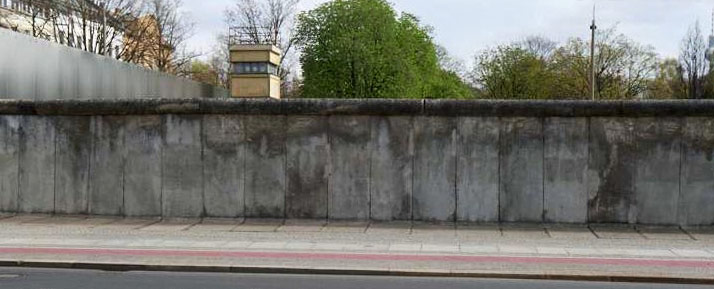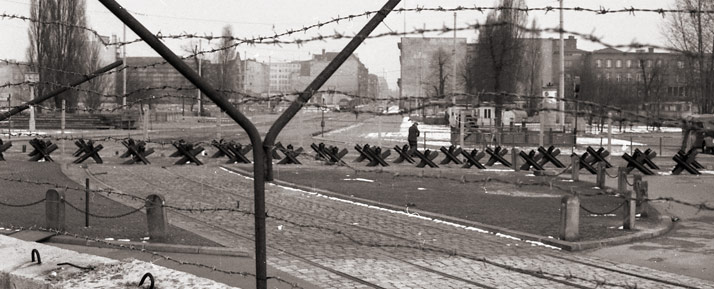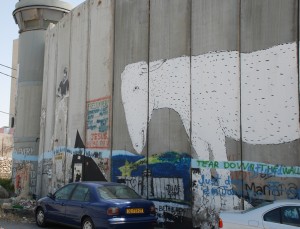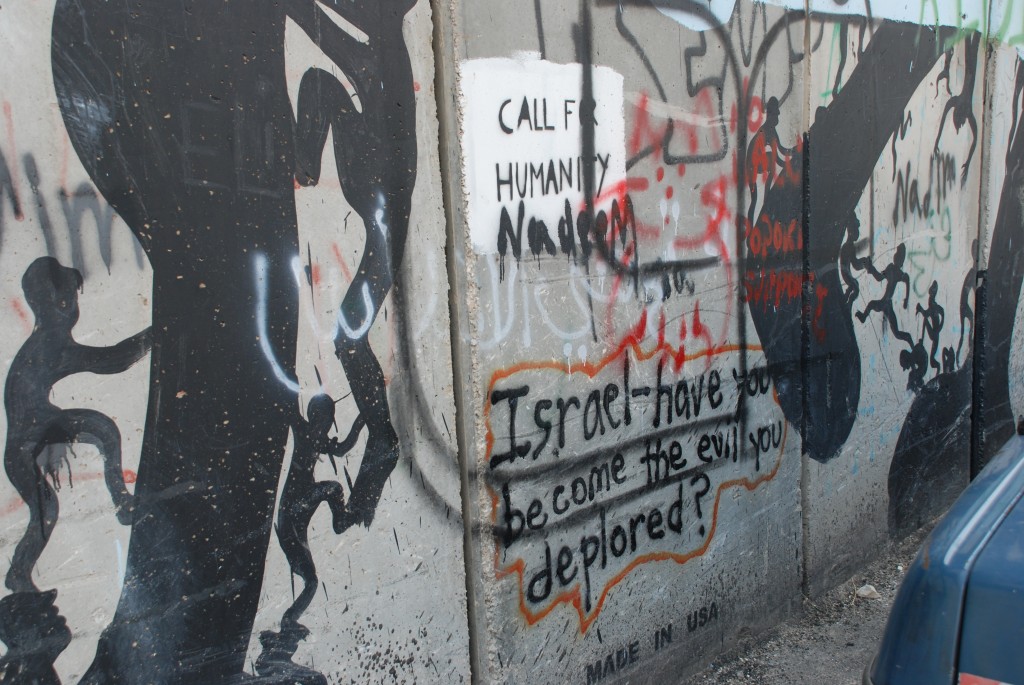3 Mar 2014
25 years after fall of the Wall, ITB Berlin fails to heed the lessons of history
This year marks 25 years since the fall of the Berlin wall, one of the most historic events in world history and a major conduit for the travel & tourism boom that followed.
The anniversary would have been a great occasion to take stock of how the stupendous changes in global history have impacted on travel & tourism for better and/or for worse. Had it been named this year’s over-arching theme, the world’s biggest travel show and its think-tank, the ITB Convention, would have been elevated into a global colloquium of industry leaders and followers, managers and workers, politicians and unionists, environmentalists and economists, social scientists to civil society groups. Intense discussions and debate could have been held about where we were, where we are and where we are heading.
But ITB Berlin has missed the boat. None of its media releases nor its website mention this historic anniversary. Whatever the reason for this lapse, it is a clear indicator of a travel & tourism industry so overwhelmingly fixated with futuristic foresight that it fails to heed the lessons of hindsight. As arguably the only Asia-Pacific travel & tourism industry journalist to have attended ITB Berlin both before and after the fall of the wall, this editor will step up to fill the void.
The fall of the wall proved beyond doubt that geopolitics impact the travel & tourism sector, for better and/or for worse, far more any other man-made factor. It marked the end of the post World War II global divide between dictatorships and democracies, and raised hopes that the final decade of the 20th century would lead to a more peaceful and stable 21st century. Whether those hopes have been fulfilled is worth debating. So, too, is the reason why such debate does not occur in the first place.
Several global events that followed that historic day in November 1989 all impacted on tourism. For example:
(+) The collapse of the Iron Curtain brought freedom and democracy to both Eastern European countries as well as the former Central Asian republics of the Soviet Union. Today, the Central Asian countries are positioning themselves as bridgeheads between Asia and Europe, vital sources of global energy and transportation links on the emerging Silk Road. In turn, the former Warsaw Pact countries are now members of the European Union. Both have become major inbound/outbound tourism players.

The former Berlin Wall. Picture source: Berlin Wall Memorial website

The grim, desolate atmosphere of a city divided by a Wall. Picture source: Berlin Wall Memorial
(+) The beginning of the end of South African apartheid in 1990 led to freedom for Nelson Mandela and the historic elections in 1994. The curtain fell on another grotesque, racist regime, not too different from totalitarian communism. Reverberating across the African continent, that positive reversal paved the way for major developments in South Africa, including a World Cup soccer extravaganza and numerous other events. Southern Africa also benefitted.
(+) There was enhanced hope for a permanent peace in the Middle East. The Oslo accords were signed in Washington, D.C., on 13 September 1993 witnessed by the leaders who negotiated it, the late Palestinian leader Yasser Arafat, the late Israeli Prime Minister Yitzhak Rabin and former U.S. President Bill Clinton. The positive atmosphere of those days generated perhaps the most exciting spin-off buzz at the ITB. This editor was privileged to cover the packed-to-capacity joint press conferences of the Israeli, Palestinian, Jordanian and Egyptian ministers and hear their hopes about the fruits of peace in the Holy Land. All were agreed that a final settlement would be a wonderful way to commemorate the upcoming bicentennial marking the birth of Christ in 2000.
(+) Much positive change was under way in travel & tourism. The World Travel & Tourism Council emerged in 1990, bringing together some of the world’s largest travel multinationals under a common agenda of job-creation via travel facilitation and liberalisation. At the UN World Tourism Organisation, former Mexican Tourism Secretary Antonio Enrique Savignac became Secretary General in 1990 and launched an intensive effort to revitalize the organisation. In Asia, the Pacific Asia Travel Association held its first annual conference in Bali in 1991, formally launching the sustainability agenda. The Greater Mekong Subregion tourism cooperation programme was launched in 1992, for the first time bringing together the former battlefield countries of Vietnam, Laos and Cambodia together with Thailand and Myanmar in a common effort to start attracting visitors. Also in 1992, the Association of Southeast Asian Nations marked its 25th anniversary with the first Visit ASEAN Year.
At the same time, two negative events also occurred.
(+) The Gulf war in Jan-Feb 1991 stunted tourism growth for the entire year. In addition to the human casualties, it was the first global conflict in which the U.S. media sacrificed its independence and freedom to report in exchange for access. Unlike during the Vietnam war, the horrors of human conflict were never shown in American living rooms. The world has paid a heavy price for that gross error of judgment.

A new 21st century wall dividing Israel and Palestine, thrice as high as the Berlin Wall.

Graffiti which once covered the Berlin Wall now decorates the Israel-Palestine wall.
(+) In November 1995, two years after the Oslo accords and a year after being awarded the 1994 Nobel Peace Prize (along with Mr. Arafat and then Israeli Foreign Minister Shimon Peres), Yitzhak Rabin was shot dead by a Jewish fundamentalist fanatic terrorist. The Middle East peace process died with him. The Berlin wall has been replaced by another much bigger, higher and longer wall dividing Israel and Palestine. Palestinians face inbound/outbound travel curbs far worse than the former East Germans under communism. They continue to be denied statehood and freedom which dozens of new post-Cold War countries enjoy including, more recently, Timor Leste and South Sudan.
The fortunes of global tourism rose and fell in tandem with those events. UNWTO records show that global visitor arrivals rose from 337 million in 1986 to 424 million in 1989 and surged 456 million in 1990, only to take another hit and stall at 462 million in 1991, the year of the Gulf war. Tourism earnings also shot up from a mere US$142 billion in 1986 to US$219 billion in 1989, US$266 billion in 1990 and then stalled at US$273 billion in 1991. In subsequent years, travel & tourism felt the heat of every global crisis such as the 9/11 attacks, SARS or an economic downturn, proving beyond doubt that peace and stability is good for tourism.
The ITB itself emerged from the ashes of World War II, thanks largely to a man named Manfred Busche who fought the odds to build a travel show in a divided city dominated by the Cold War. Today, Berlin is again the capital of a united Germany. Its very transformation into a global city is a reflection of the global change.
Today, 25 years later, the world has changed inexorably and rapidly, due to both man-made factors and the so-called “acts of God”. But has it become a better, safer, more peaceful place? Both political and economic freedoms were claimed to be able to do exactly that. Privatisation, liberalisation and deregulation were bandied as proven panaceas to boost prosperity, create jobs and spread income.
Did they? Growing evidence points to the contrary. Corruption and rich-poor income gaps are at all-time highs. Social, cultural and ethnic differences are worsening. Regime-change has become as controversial as climate change. Politically, the Western democracies have betrayed the hopes of 1989. In the great Orwellian tradition of double-speak, they justify Islamophobia, surveillance, racial profiling, infringement on privacy and the once dreaded midnight knocks on the door as means of protecting “freedom and democracy” and preserving safety and security.
Now, in the final year before the 2015 deadline for achievement of the UN Millennium Development Goals, another tectonic global shift is taking place. The West is in decline, the East is on the rise, mainly because populations are ageing in the West while young people are increasing in Asia and Africa and the Arab and Islamic worlds. Rumblings of change are occurring in ASEAN, India and Indonesia. The crises in Thailand, Egypt and Ukraine again prove that geopolitics trump economics as determinants of the health of travel & tourism.
In spite of the ups and downs, travel & tourism has doubled in the last 25 years. But so, too, has its environmental impact, including water and energy consumption, waste and garbage production. At the ITB Berlin, one hears ad nauseum about new airports, cruise ships and convention centres but rarely about facilities to manage the environmental impact. In travel & tourism lexicon, “infrastructure” is only that which facilitates economic growth, not that which is supposed to clean up the mess created by economic growth. As millions of Indians, Chinese, Russians, Asians and Africans get bitten by a future travel bug, managing growth will become far more important than creating growth.
These realities do not figure as prominently as they deserve to at the ITB Berlin nor the ITB Convention. The ITB Berlin has become a Eurocentric show, a mutual-admiration club of people preaching to the converted, with zero space for intelligent debate, alternative perspectives or challenging of conventional wisdoms. Risk-averse sponsors and advertisers would not approve of such an agenda. The golden rule has kicked in – he who has the gold, makes the rules. This one-sided, head-in-the-sand attitude regrettably has a trickle-down impact on all other industry forums worldwide.
If today’s young generation of techno-savvy bean-counters attending the 2014 ITB Berlin wish to think a little beyond their next quarterly profit-and-loss report, a visit to the Berlin Wall Memorial may help them reflect on the world as it was, as it is today, and as it may well be for their children and grand-children. A little critical-thinking may help them see that one wall has been replaced by other bigger ones, and not just of the physical category. Some serious debate about whether the hopes, dreams and aspirations of the post-Berlin Wall era have been realised is long overdue. If the ITB Berlin will not rise to the occasion, hopefully another global or regional travel trade show will.
Further reading:
